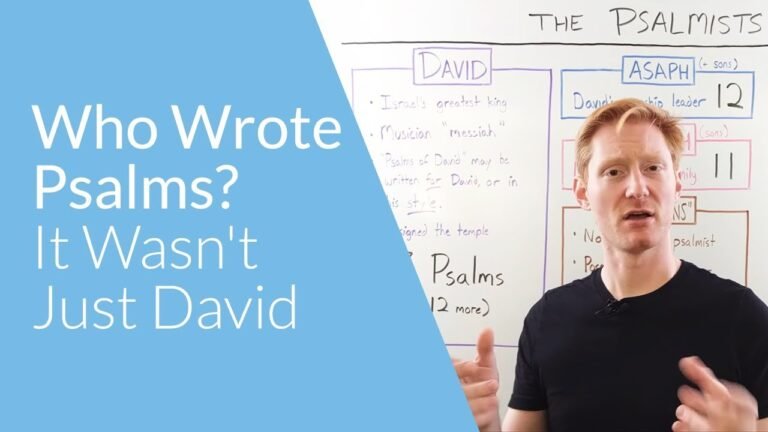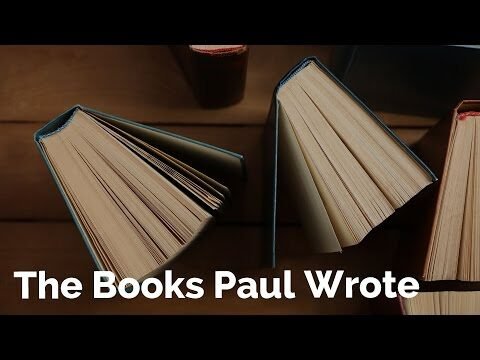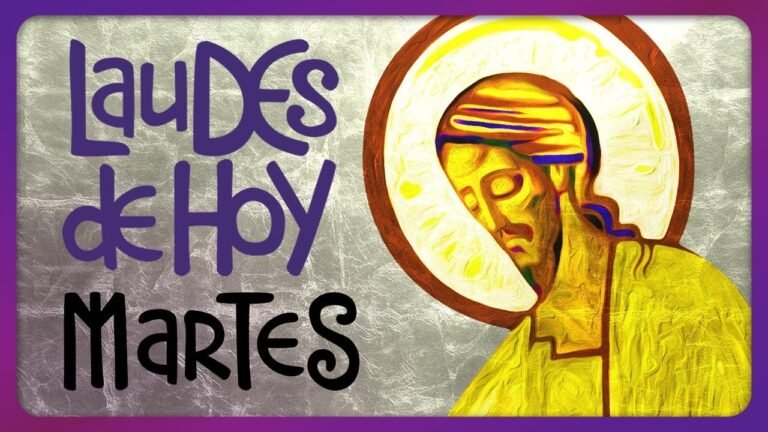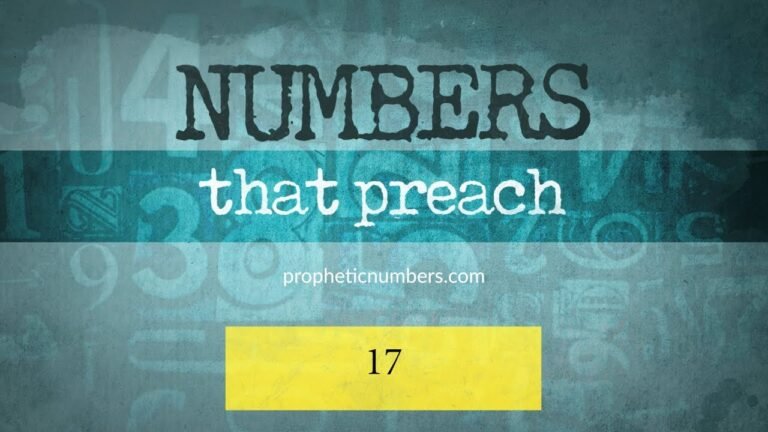The Authorship of the Psalms: Unveiling the Writers
The Book of Psalms, a cornerstone of spiritual literature, has captivated readers for centuries with its profound expressions of faith, emotion, and human experience. But who wrote the Psalms? This intriguing question leads us into a rich tapestry of history and authorship, revealing contributions from figures such as King David, Asaph, and the sons of Korah, among others. As we explore the origins and meanings behind these timeless verses, we uncover the diverse voices that have shaped this sacred text, inviting us to reflect on its enduring relevance in our lives today.
Who is the actual author of the Psalms?
The Book of Psalms is a rich tapestry of spiritual poetry, traditionally attributed to several key figures in biblical history. Among these, King David stands out as the most prominent author, often recognized for his profound expressions of faith, grief, and praise. His contributions provide a foundational voice that resonates throughout the text, making the Psalms a cornerstone of both Jewish and Christian worship.
In addition to David, the Psalms also include works attributed to Ethan the Ezrahite and King Solomon, showcasing a diversity of perspectives and experiences. These contributions highlight the collaborative nature of the Psalms, reflecting the varied historical and cultural contexts from which they emerged. Each author brings their unique insights, enriching the overall narrative of the Psalms as a source of inspiration.
Moreover, the collection contains what are known as orphan psalms, which remain anonymous and are attributed to no specific writer. This adds an intriguing layer to the Psalms, suggesting that the quest for divine connection is a universal experience, transcending individual authorship. While David’s influence is undeniable, the multi-authored nature of the Psalms invites readers to engage with a broader spectrum of wisdom and emotion.
What was the reason behind David writing the psalms?
David, the King of Israel, penned the Psalms as a heartfelt call to his people, particularly his soldiers, urging them to maintain their devotion and integrity before God. Through his words, he aimed to inspire courage and resilience, helping them to see beyond the immediate threats of their enemies and to focus on their faith and purpose. In doing so, David provided a spiritual anchor that encouraged his people to uphold their values and find strength in their relationship with the divine.
Which psalm was written by Adam?
Psalm 139 holds a unique place in the biblical tradition, as it is attributed to Adam, the first human being. According to the Midrash Shocher Tov, this psalm reflects the profound connection between the Creator and His creation. The verses delve into themes of divine omniscience and the intimate knowledge God has of each person, which can be seen as resonating with Adam’s own experience of being formed by God.
The psalm’s vivid imagery in verses 5 and 16 specifically echoes the narrative of Adam’s creation, highlighting the intricate relationship between humanity and the divine. These passages suggest a deep awareness of how God intricately wove Adam into existence, underscoring the significance of human life in the eyes of the Creator. This connection not only emphasizes the sanctity of life but also illustrates the timeless relevance of the psalm’s message.
While Adam is credited with the themes and essence of Psalm 139, it is important to note that the actual words were penned by David. This collaboration between Adam’s foundational experiences and David’s poetic expression creates a rich tapestry of meaning that continues to resonate with readers today. The psalm serves as a powerful reminder of our place in the world and the divine presence that surrounds us at all times.
Discovering the Voices Behind the Verses
In the realm of poetry, every line whispers the unspoken stories of its creator, inviting readers to delve deeper into the emotional landscapes woven between the words. Each poet, with their unique voice, crafts a tapestry of experiences, thoughts, and feelings that resonate across time and space. As we explore the intricate layers of their verses, we uncover the profound connections that unite us all, revealing that behind every poem lies a personal journey that speaks to the universal human condition. By discovering these voices, we not only celebrate their artistry but also enrich our own understanding of the world around us.
Exploring the Contributors to Sacred Poetry
Sacred poetry serves as a profound expression of spirituality, drawing from a rich tapestry of cultural and historical influences. The contributors to this genre range from ancient mystics to contemporary writers, each bringing unique perspectives and experiences that enrich the poetic landscape. Their works often reflect deep personal revelations, religious convictions, and the universal quest for meaning, allowing readers to connect with the divine through the power of words. This fusion of voices not only preserves sacred traditions but also inspires new interpretations of faith and existence.
The collaborative nature of sacred poetry highlights the interplay between individual creativity and collective belief systems. Poets often engage with sacred texts, rituals, and communal experiences, weaving these elements into their verses to evoke a sense of shared spirituality. As a result, their poetry resonates across generations, transcending cultural boundaries and inviting dialogue about the nature of belief. This exploration of contributors reveals how sacred poetry not only serves as an artistic endeavor but also acts as a bridge between the sacred and the secular, fostering deeper understanding and connection among diverse audiences.
Who Penned the Psalms? A Journey of Revelation
The Psalms, a timeless collection of sacred songs and prayers, have captivated hearts for centuries, offering solace and inspiration to countless individuals. Traditionally attributed to King David, the Psalms encompass a range of emotions, from deep sorrow to overflowing joy, reflecting the spiritual journey of humanity. However, a closer examination reveals a tapestry woven by multiple authors, including Asaph, the sons of Korah, and Solomon. Each contributor adds a unique perspective, enriching the text and allowing it to resonate across different contexts and cultures.
As we delve into the origins of these profound writings, we uncover a journey of revelation that transcends time. The diverse voices within the Psalms invite us to explore the complexities of faith, doubt, and devotion. This multifaceted authorship not only broadens our understanding of the Psalms but also emphasizes their relevance in today’s world. Through their poetic expressions, we encounter a divine dialogue that speaks to the depths of our souls, reminding us of the enduring nature of hope and the power of prayer in our lives.
Unmasking the Creators of Timeless Lamentations
In the realm of literature and art, few expressions resonate as deeply as the lamentation, a poignant reflection of human sorrow and resilience. This timeless genre captures the essence of grief, loss, and longing, serving as a powerful conduit for creators to explore the depths of the human experience. From ancient poets to modern playwrights, the act of lamenting has transcended cultural boundaries, uniting voices across generations in a shared narrative of struggle and hope.
The creators of these timeless lamentations possess a unique ability to transform personal pain into universal themes that touch the hearts of many. They wield language like a brush, painting vivid imagery that evokes empathy and understanding. Through their work, they invite audiences to confront difficult emotions, reminding us that vulnerability is a strength, not a weakness. This artistic courage fosters a sense of community, encouraging individuals to find solace in shared experiences and collective healing.
As we delve into the lives of these remarkable artists, we discover the stories behind their creations—their inspirations, challenges, and triumphs. Each lamentation is not merely an expression of sorrow; it is a testament to resilience and the enduring spirit of humanity. By unmasking the creators behind these poignant works, we gain a deeper appreciation for the art of lamentation, recognizing it as a vital part of our cultural heritage that continues to inspire and uplift us today.
The authorship of the Psalms remains a rich tapestry woven from tradition, faith, and mystery. While many attribute them to figures like David, Asaph, and Solomon, the true identity of each writer often eludes definitive categorization. This complexity not only deepens our appreciation for these ancient texts but also invites us to explore the diverse voices and experiences that shaped them. Ultimately, the Psalms stand as a testament to the enduring human spirit, resonating across centuries and offering a profound connection to the divine.







